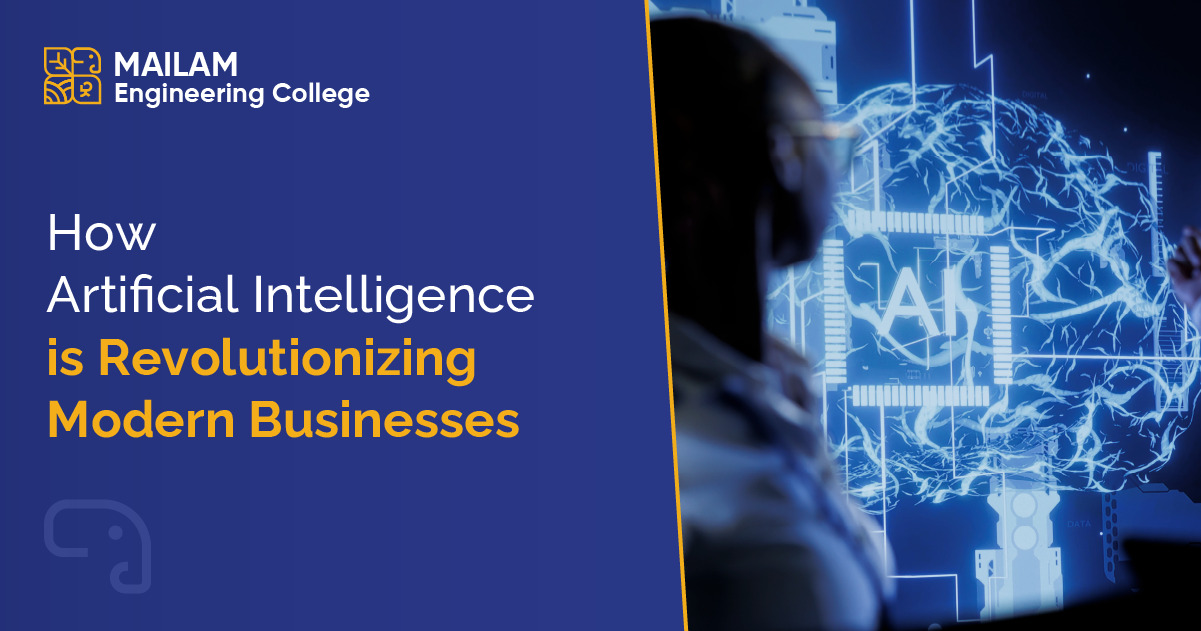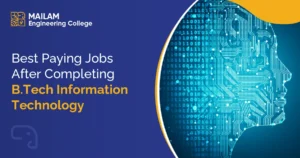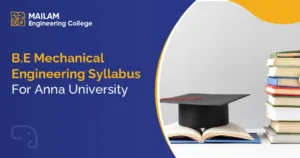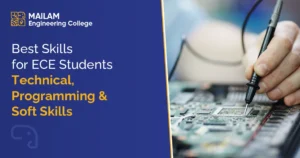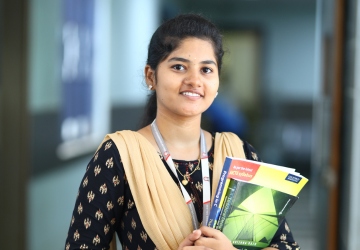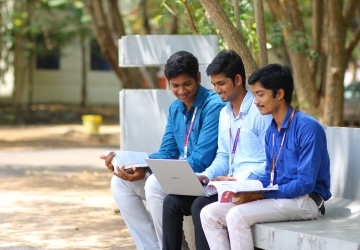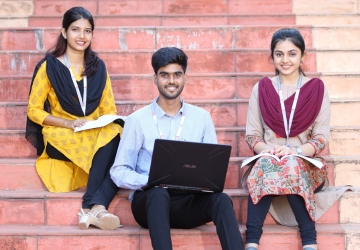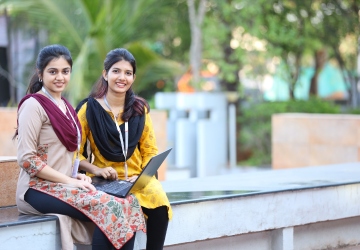Introduction
The technology known as Artificial Intelligence (AI) exists in the present day as an operational, real-time system that rejuvenates modern business operations. The continuous implementation of AI has enabled businesses to enhance their operations into smarter operations while achieving faster execution and better competitive positioning. The digital age demands that all organizations adopt AI technology because this approach ensures business leaders maintain their market position.
How Artificial Intelligence Is Powering The Future Of Business
1. Smart Data Analysis In Seconds
- Artificial intelligence operates on enormous data collections to reach speedy analysis results.
The power of AI enables rapid analysis of enormous database information to help companies achieve unprecedented speed in accessing their insights. The shortened wait time for data reports enhances operational decision processes.
- The system automatically identifies both patterns and trends.
AI algorithms automatically interpret sales patterns, alter customer conduct, and track inventory needs so businesses can adjust their operations in advance through automated processes.
- The implementation of data-based strategies produces positive outcomes.
Businesses that utilize real-time insights can deliver strategies in sync with market patterns and thus decrease waste while enhancing their return on investment.
2. Personalized Customer Experiences At Scale
- Artificial Intelligence Tailors Products and Recommendations for Each Customer
Artificial Intelligence analyzes previous history and preferences together with purchase history to make accurate recommendations which enhance the chances of customer purchases.
- Chatbots Provide Instant 24/7 Customer Support
The artificial intelligence system operates chatbots to deal with basic customer inquiries about orders and feedback while operating 24 hours per day without requiring extensive support teams.
- Businesses use customer tracking to deliver targeted marketing efforts to their buyers.
Through audience behavior analysis AI provides businesses with the ability to deliver tailored ad and promotion campaigns at momentary perfect times.
| Did You Know?AI engines that match customer needs lead to a 20% increase in client happiness and a 10% rise in revenue. |
3. Operational Efficiency Like Never Before
- The use of AI eliminates both tedious activities that require excessive human input.
AI streamlines standard tasks that involve invoice production along with email sorting thus creating additional time for employees to handle complicated assignments.
- The workflow optimization through AI leads to diminished human errors.
Any automated system delivers precise operations with reduced errors, particularly during data entry tasks, together with inventory tracking processes.
- Terms Of Supply Chain And Logistics Operate With Exactness
The combination of AI systems conducts demand prediction and tracks shipments, then generates delivery route recommendations that create faster delivery processes and minimize expenses.
4. Smarter Business Decisions
- The advancement of AI tools enables organizations to make forecasts regarding market trends.
AI application of historical data alongside market data enables predictions of sales peaks alongside product demand and customer interests before their occurrence.
- The analysis of instant data enables businesses to quickly change their strategic plans.
When a campaign performs poorly businesses gain access to AI dashboards for quick modifications of their pricing structure or promotional offers.
- Artificial Intelligence helps businesses by eliminating subjective biases from their analysis procedures to create objective results.
Programming algorithms function based solely on data patterns, so they produce objective, non-prejudicial decision outputs.
| Did You Know?Research indicates that organizational decision-making through AI technology provided better accuracy levels alongside enhanced speed to businesses that implemented it. |
5. Advanced Cybersecurity Solutions
- Digital systems operated by AI detect abnormal network behaviour together with potential security threats.
The continuous system scans from AI automatically detect doubtful interactions and report strange login events and substantial file transfers.
- The system extracts knowledge from existing security incidents to stop new ones from occurring.
AI models become more intelligent after dealing with each cyber incident since they learn from past security events to block potential threats in advance.
- The immediate response capabilities of the system help to prevent interruptions during business operations.
The timely notification system, coupled with an AI-powered threat response mechanism, helps teams respond immediately, thereby reducing operational interruptions and data loss incidents.
6. Revolutionizing Human Resource Management
- AI Streamlines The Hiring Process With Resume Screening
Automated resume screening utilizes AI to analyze numerous job applications and create candidate lists through keyword and professional profile analysis, as well as role compatibility evaluation to reduce human labour requirements.
- The use of smart tools enables monitoring of employee performance.
Human resources teams receive feedback from AI platforms, which assess productivity metrics together with task achievement results and employee engagement rates, so they can monitor personnel development.
- AI systems use predictive analysis to help organizations keep their staff members.
HR professionals can intervene early to stop employee attrition with help from AI pattern recognition of dissatisfactory behaviour or disengagement patterns.
7. Driving Innovation Through Predictive Maintenance
- AI technology detects equipment problems that will occur before the damage becomes evident.
AI systems in manufacturing and industrial operations check machines to detect signs of degeneration that may become costly breakdowns.
- Operational stability and decreased equipment standstill both result from artificial intelligence applications.
Preventive maintenance performed according to AI-based analysis helps operations to maintain smooth and efficient management.
- Predictive maintenance helps achieve two dual goals: safety improvement as well as prolonged equipment life.
The detection of potential malfunctions at an early stage through AI leads to the prevention of workplace incidents and lengthens the operational equipment span.
Mailam Engineering College: Built On Innovation And Driven By Vision
Mailam Engineering Collage dedicates itself to providing businesses with solutions that will prepare them for upcoming developments. Mailam combines high-quality work and reliable advanced technology to provide strategic services that enable business growth as well as industry leadership. Our method builds from valuable industry knowledge while recognising customers’ needs using a passion for advancement.
Conclusion
Artificial Intelligence was a concept everyone used to imagine far away into the future until not long ago, but now the scenario has changed. The way businesses operate today undergoes permanent changes through artificial intelligence technology, which enhances customer service and operational processes, market intelligence, and human resources operations. The implementation of this technology by companies leads to two outcomes: enhanced performance and improved business ability to scale.
FAQs On Artificial Intelligence
1. Business operations make regular use of artificial intelligence systems in what ways?
Artificial Intelligence assists businesses through three core functions: it automates routine work tasks, analyzes customer information while handling inventory needs, and enhances marketing operations and chatbot-based customer assistance.
2. Does the budget of small businesses extend to AI system implementation?
Multiple affordable and scalable AI tools are currently available for market use. The cloud-based deployment method and automated tools are now available to all businesses, including small startups.
3. Does AI eliminate human employment from all occupations?
Not entirely. Computers take over mundane workloads yet uplift employment markets with positions needing human attributes such as imagination and understanding of emotions together with strategic thinking capabilities.
4. What sectors leverage AI the most for their operations?
AI technology improves business operations within healthcare and finance industry segments alongside retail and manufacturing sectors along with logistics and marketing. The implementation of AI creates more precise outcomes and fuel efficiency together with better decision processes across the various business fields.
5. The reliability and security of utilizing AI technology for business data exist to what extent?
Security exists successfully for properly implemented AI systems. Businesses can guarantee AI security by using respected platforms together with protocols to preserve data privacy thus achieving safe and efficient outcomes.

